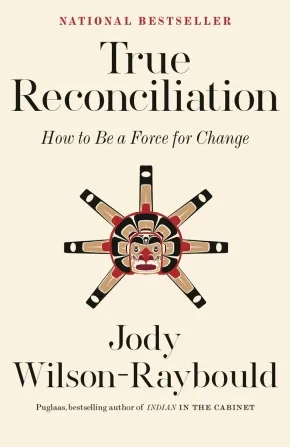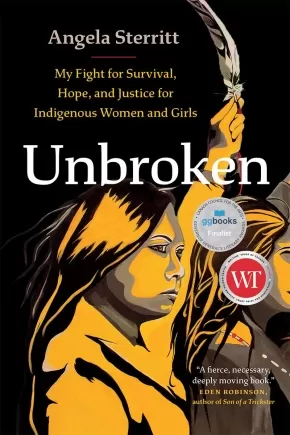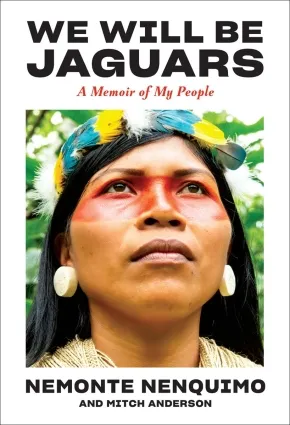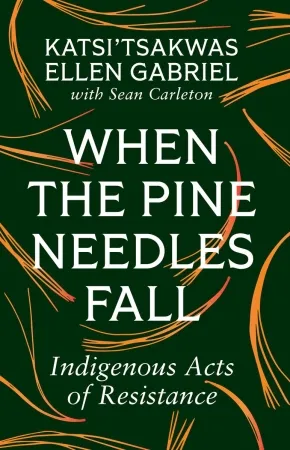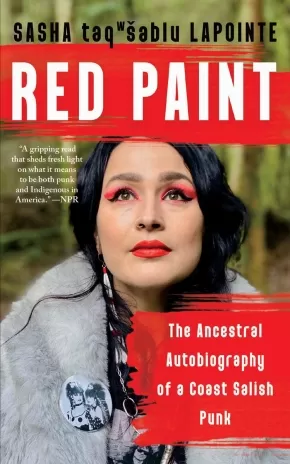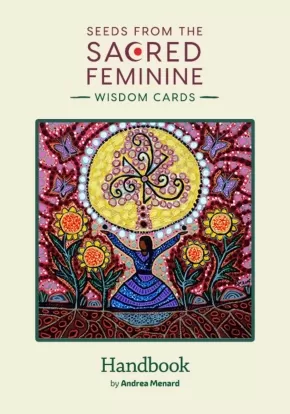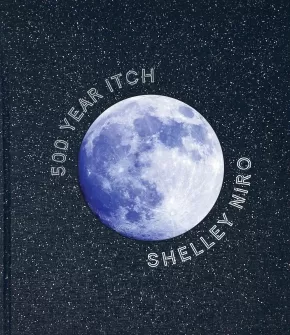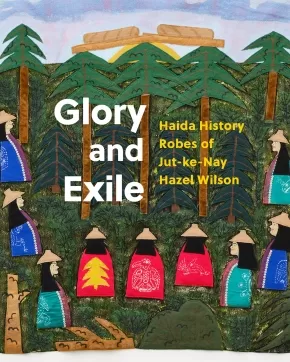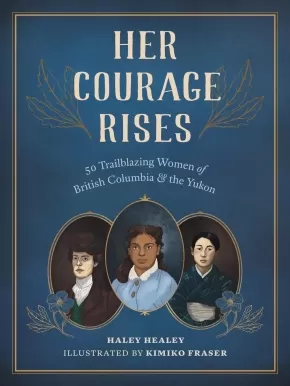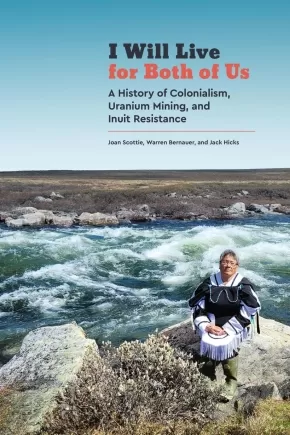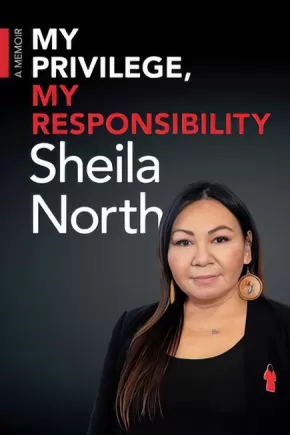
Women's Studies
16
-
30
of
73 Results;
Sort By
Go To
of 5
Métis Matriarchs: Agents of Transition
$34.95
Editors:
Format:
Paperback
Text Content Territories:
Indigenous Canadian; Métis;
Reading Level: N/A
ISBN / Barcode: 9781779400116
Synopsis:
Synopsis:
Explores the integral roles that Métis women assumed to ensure the survival of their communities during the fur trade era and onward
Métis Matriarchs examines the roles of prominent Métis women from across Western Canada from the late 19th to the mid-20th century, providing a rare glimpse into the everyday lives of these remarkable women who were recognized as Matriarchs and respected for their knowledge, expertise, and authority within their families and communities.
This edited collection provides an opportunity to learn about the significant contributions made by Métis women during a transitional period in Western Canadian history as the fur trade gave way to a more sedentary, industrialized, and agrarian economy. Challenging how we think about Western Canadian settlement processes that removed Indigenous peoples from the land, this collection of stories examines the ways Métis matriarchs responded to colonial and settler colonial interventions into their lives and livelihoods and ultimately ensured the cultural survival of their communities.
Awards
- 2025 Canadian Historical Association Indigenous History Book Prize
Reviews
“A nuanced account of the lives of Métis women and their vital roles as they helped guide their families and communities through generations of transitions.” —Michel Hogue, author of Metis and the Medicine Line
Additional Information
336 pages | 5.00" x 8.00"| Paperback
True Reconciliation: How to Be a Force for Change (PB)
$23.00
Format:
Paperback
Text Content Territories:
Indigenous Canadian;
Reading Level: N/A
ISBN / Barcode: 9780771004407
Synopsis:
Synopsis:
There is one question Canadians have asked Jody Wilson-Raybould more than any other: What can I do to help advance reconciliation? It is clear that people from all over the country want to take concrete and tangible action that will make real change. We just need to know how to get started. This book provides that next step. For Wilson-Raybould, what individuals and organizations need to do to advance true reconciliation is self-evident, accessible, and achievable. True Reconciliation is broken down into three core practices—Learn, Understand, and Act—that can be applied by individuals, communities, organizations, and governments.
The practices are based not only on the historical and contemporary experience of Indigenous peoples in their relentless efforts to effect transformative change and decolonization, but also on the deep understanding and expertise about what has been effective in the past, what we are doing right, and wrong, today, and what our collective future requires. Fundamental to a shared way of thinking is an understanding of the Indigenous experience throughout the story of Canada. In a manner that reflects how work is done in the Big House, True Reconciliation features an “oral” history of these lands, told through Indigenous and non-Indigenous voices from our past and present.
The ultimate and attainable goal of True Reconciliation is to break down the silos we’ve created that prevent meaningful change, to be empowered to increasingly act as “inbetweeners,” and to take full advantage of this moment in our history to positively transform the country into a place we can all be proud of.
Additional Information
352 pages | 5.17" x 7.99" | Paperback
Unbroken: My Fight for Survival, Hope, and Justice for Indigenous Women and Girls (PB)
$24.95
Format:
Paperback
Text Content Territories:
Indigenous Canadian; First Nations; Gitxsan (Gitksan);
Grade Levels: 12; University/College;
ISBN / Barcode: 9781778402142
Synopsis:
Synopsis:
Unbroken is an extraordinary work of memoir and investigative journalism focusing on missing and murdered Indigenous women and girls, written by an award-winning Gitxsan journalist who survived life on the streets against all odds.
As a Gitxsan teenager navigating life on the streets, Angela Sterritt wrote in her journal to help her survive and find her place in the world. Now an acclaimed journalist, she writes for major news outlets to push for justice and to light a path for Indigenous women, girls, and survivors. In her brilliant debut, Sterritt shares her memoir alongside investigative reporting into cases of missing and murdered Indigenous women in Canada, showing how colonialism and racism led to a society where Sterritt struggled to survive as a young person, and where the lives of Indigenous women and girls are ignored and devalued.
Growing up, Sterritt was steeped in the stories of her ancestors: grandparents who carried bentwood boxes of berries, hunted and trapped, and later fought for rights and title to that land. But as a vulnerable young woman, kicked out of the family home and living on the street, Sterritt inhabited places that, today, are infamous for being communities where women have gone missing or been murdered: Vancouver's Downtown Eastside, and, later on, Northern BC's Highway of Tears. Sterritt faced darkness: she experienced violence from partners and strangers and saw friends and community members die or go missing. But she navigated the street, group homes, and SROs to finally find her place in journalism and academic excellence at university, relying entirely on her own strength, resilience, and creativity along with the support of her ancestors and community to find her way.
"She could have been me," Sterritt acknowledges today, and her empathy for victims, survivors, and families drives her present-day investigations into the lives of missing and murdered Indigenous women. In the end, Sterritt steps into a place of power, demanding accountability from the media and the public, exposing racism, and showing that there is much work to do on the path towards understanding the truth. But most importantly, she proves that the strength and brilliance of Indigenous women is unbroken, and that together, they can build lives of joy and abundance.
Reviews
"Sterritt's story is living proof of how courageous Indigenous women are. Listen to her voice and hear the sound of the land, hear the sound of our women weeping but also raging—refusing to be neglected or ignored any longer."—Tanya Talaga, author of Seven Fallen Feathers and All Our Relations
"A fierce, necessary, deeply moving book. Sterritt uses her difficult personal journey to frame the terrible history of missing and murdered Indigenous women in Canada. Haunting and illuminating."— Eden Robinson, author of Son of a Trickster
"Angela Sterritt takes on Canada's deeply flawed justice system, deftly exposing systemic racism and the continuing impacts of colonialism. This book is a compelling read and a well-researched and powerful heart-centered memoir."—Lorimer Shenher, author of That Lonely Section of Hell
"With facts and humanity, Angela Sterritt effortlessly draws us into this emotional and important read. A courageous Indigenous voice who uses her personal journey to educate all of us about critical and urgent issues we must address, including Missing and Murdered Indigenous Women and Girls."— Jody Wilson-Raybould
"A new clear, compelling, and urgent voice illuminates a critical topic of our times with the passion and profound caring of a devoted sister. A tour de force."—Darrel McLeod, author of Mamaskatch and Peyakow
"A remarkable life story. . . Angela Sterritt is a formidable storyteller and a passionate advocate."—Cherie Dimaline, author of The Marrow Thieves
"[A] thought-provoking memoir. . . Beginning with a haunting list of names of Indigenous women and girls who were either murdered or missing along the Highway of Tears, the book tells the stories of such ignored and abused victims. . . The final product is eyeopening, making use of tragic firsthand accounts from grieving families and Sterritt's personal memories, all raw and rich with detail. . . [P]owerful."—Foreword Reviews
Additional Information
6.00" x 9.00" | Paperback
We Will Be Jaguars: A Memoir of My People
$35.00
Format:
Hardcover
Text Content Territories:
Indigenous South American; Indigenous Peoples in Ecuador; Waorani ;
Reading Level: N/A
ISBN / Barcode: 9781419763779
Synopsis:
Synopsis:
From a fearless, internationally acclaimed activist comes an impassioned memoir about an indigenous childhood, a clash of cultures, and the fight to save the Amazon rainforest
We Will Be Jaguars is an astonishing memoir by an equally astonishing woman. Nenquimo is a winner of TIME magazine’s Earth Award, and MS. magazine named this book among the Most Anticipated Feminist Books of 2024.
Born into the Waorani tribe of Ecuador’s Amazon rainforest—one of the last to be contacted by missionaries in the 1950s—Nemonte Nenquimo had a singular upbringing.
She was taught about plant medicines, foraging, oral storytelling, and shamanism by her elders. At age fourteen, she left the forest for the first time to study with an evangelical missionary group in the city. Eventually, her ancestors began appearing in her dreams, pleading with her to return and embrace her own culture. She listened.
Two decades later, Nemonte has emerged as one of the most forceful voices in climate change activism. She has spearheaded the alliance of indigenous nations across the Upper Amazon and led her people to a landmark victory against Big Oil, protecting over a half million acres of primary rainforest. Her message is as sharp as a spear—honed by her experiences battling loggers, miners, oil companies and missionaries.
In We Will Be Jaguars, she partners with her husband, Mitch Anderson, founder of Amazon Frontlines, digging into generations of oral history, uprooting centuries of conquest, hacking away at racist notions of indigenous peoples, and ultimately revealing a life story as rich, harsh, and vital as the Amazon rainforest herself.
Reviews
“If you want to understand the climate crisis and do something about it, read this book. Nemonte’s writing is as provocative as it is inspiring, a heroine speaking her truth which is exactly what we need to hear. Had we listened long ago to these voices we wouldn’t be in the eye of the storm now.” — Emma Thompson
“We Will Be Jaguars is the story of the humanity and fierce determination of Nemonte Nenquimo, one of the most effective leaders for Indigenous rights and environmental justice. In her gripping memoir, Nenquimo shares her journey from childhood to warrior leader, fighting the forces of greed and destruction that threaten the Waorani People and their vast, spectacular rainforest. Her story highlights the love and strength required to overcome the forces that threaten our planet.” — Laurene Powell Jobs, founder and president, Emerson Collective
“On one level, Nemonte Nenquimo’s memoir is inspiring, moving, and unforgettable; a rarely seen, firsthand insight into a childhood spent in the Amazon rainforest and the extraordinary story of her fight to save it from oil companies. On another level, this intimate and motivating book should spur action from all of us: the fight to save our planet from exploitation is something that affects us all and is the responsibility of us all. Nenquimo’s leadership and example should shame those of us in industrialized countries into changing the way we live and the way we see our world.” — Rowan Hooper, author of How to Save the World for Just a Trillion Dollars
“Everyone should read this––never has a book been more urgent. Truly soul-stirring, Nemonte’s book is a radical manifesto for our times. It moved me to tears. Her story flows like a mighty river, and I was utterly taken by its current.”— Vanessa Kirby, actress and activist
"Full of wisdom, sadness, flourishes of joy and more than a few psychedelic visions, We Will Not be Saved is testament not only to Nenquimo’s resilience but also her deep spiritual connection to her land and ancestors. ... [It] plant[s] readers right in the heart of the rainforest, immersing them in its sounds, smells and kaleidoscopic landscapes. Many are the memoirs that profess to tell untold stories, but here that claim is watertight." — The Guardian
Additional Information
368 pages | 6.00" x 9.00" | Hardcover
When the Pine Needles Fall: Indigenous Acts of Resistance
$32.95
Format:
Paperback
Text Content Territories:
Indigenous Canadian; First Nations; Haudenosaunee (Iroquois); Kanyen'keha:ka (Mohawk); Kanehsatà:ke; Kahnawà:ke ;
Reading Level: N/A
ISBN / Barcode: 9781771136501
Synopsis:
Synopsis:
There have been many things written about Canada’s violent siege of Kanehsatà:ke and Kahnawà:ke in the summer of 1990, but When the Pine Needles Fall: Indigenous Acts of Resistance is the first book from the perspective of Katsi’tsakwas Ellen Gabriel, who was the Kanien’kehá:ka (Mohawk) spokesperson during the siege. When the Pine Needles Fall, written in a conversational style by Gabriel with historian Sean Carleton, offers an intimate look at Gabriel’s life leading up to the 1990 siege, her experiences as spokesperson for her community, and her work since then as an Indigenous land defender, human rights activist, and feminist leader.
More than just the memoir of an extraordinary individual, When the Pine Needles Fall offers insight into Indigenous language, history, and philosophy, reflections on our relationship with the land, and calls to action against both colonialism and capitalism as we face the climate crisis. Gabriel’s hopes for a decolonial future make clear why protecting Indigenous homelands is vital not only for the survival of Indigenous peoples, but for all who live on this planet.
Awards
- 2025 Canadian Historical Association Indigenous History Book Prize
- 2025 Errol Sharpe Book Prize
- 2025 Wilson Institute Book Prize
Reviews
“When the Pine Needles Fall is a profound treatise and manifesto chronicling Haudenosaunee resistance to land theft by one of the most important Land Defenders of our time. Gabriel’s work is the book on Indigenous resistance I’ve been waiting for my whole life. It is a must-read for anyone concerned with the continuation of life on this planet.” — Leanne Betasamosake Simpson, co-author of “Rehearsals for Living”
“Katsi’tsakwas Ellen Gabriel’s words in When the Pine Needles Fall are gifts that serve as a beacon of light by igniting our hearts, minds, and spirits. Through her boundless wisdom grounded in healing work as a Land Defender on Turtle Island, she calls for fierce Indigenous resistance and radical global solidarity to put an end to root causes of oppression worldwide: capitalism, patriarchy, and settler colonialism. Gabriel reminds us that a more just, kind, and caring world—where all life is precious—is possible for the next seven generations, but only if we fight for it.” — Samir Shaheen-Hussain, MD, author of “Fighting for A Hand to Hold: Confronting Medical Colonialism against Indigenous Children in Canada”
“When the Pine Needles Fall is a remarkable and revelatory account of the 1990 siege of Kanehsatà:ke and Kahnawà:ke, when provincial, municipal, and national armed forces targeted these Mohawk communities. It is also one of the best first-hand accounts of Indigenous activism that I have ever read, relayed in moving and extraordinary form. An essential addition to contemporary First Nations history and the growing field of Indigenous Studies.” — Ned Blackhawk, Western Shoshone, author of “The Rediscovery of America: Native Peoples and the Unmaking of U.S. History”
“As a treatise on women and culture-based governance from a remarkable Haudenosaunee leader, When the Pine Needles Fall offers me hope and renewed energy. Through her life work, Ellen Gabriel demonstrates how to persevere, remain optimistic, and continue with creative and activist endeavours. The book effectively situates the ‘crisis’ within its centuries-long context, marking a tipping point for Canada while highlighting ongoing challenges. It also examines how mainstream narratives are constructed around Indigenous struggles, providing a comprehensive profile of Gabriel’s diverse contributions to Indigenous resistance and resurgence.” — Kim Anderson, author of“ Life Stages and Native Women: Memory, Teachings, and Story Medicine”
“Katsi’tsakwas Ellen Gabriel’s personal account of the 1990 siege of Kanehsatà:ke and Kahnawà:ke is a crucial contribution to our understanding of these dramatic events and of the political context of the time. Her lifetime dedication to the defence of Indigenous peoples and women’s rights is truly exemplary and constitutes an inspiration for generations to come.” — Bernard Duhaime, professor, Faculty of Political Science and Law, Université du Québec à Montréal
“In When the Pine Needles Fall, celebrated activist Katsi’tsakwas Ellen Gabriel gifts us with an expansive account of the 1990 siege of Kanehsatà:ke and Kahnawà:ke. This alone provides a captivating analysis of this seminal moment and its legacy within larger movements for Indigenous sovereignty on Turtle Island. But Gabriel, an artist, also paints the negative space, braiding her relationship to the land, Kanien’kehá:ka teachings, and the language with her tireless work against settler colonialism, extractive capitalism, and patriarchy. This essential book is an inspiring conversation reminding us that decolonization is world-building rooted in an ethics of relationality and care.” — Nazila Bettache, MD, MPH; assistant professor of medicine, Université de Montréal; social justice organizer and co-editor of “Reflections on Illness”
“I honour my sister whose words speak the truth. One of the most powerful quotes by Katsi’tsakwas is: ‘I’m a Kanien’kehá:ka woman who cares deeply about our land and I want a better future for the generations to come.’ Everything she speaks about in this book is directly connected to these words.” — Beverley Jacobs, CM, LLB, LLM, PhD; Kanien’kehá:ka, Bear Clan, Six Nations Grand River Territory; associate professor, Faculty of Law, University of Windsor
Additional Information
280 pages | 5.50" x 8.50" | Paperback
Red Paint: The Ancestral Autobiography of a Coast Salish Punk (PB)
$23.00
Format:
Paperback
Text Content Territories:
Indigenous American; Native American; Salish; Coast Salish; Nooksack; Upper Skagit;
ISBN / Barcode: 9781640095885
Synopsis:
Synopsis:
An Indigenous artist blends the aesthetics of punk rock with the traditional spiritual practices of the women in her lineage in this bold, contemporary journey to reclaim her heritage and unleash her power and voice while searching for a permanent home.
Sasha taqʷšəblu LaPointe has always longed for a sense of home. When she was a child, her family moved around frequently, often staying in barely habitable church attics and trailers, dangerous places for young Sasha.
With little more to guide her than a passion for the thriving punk scene of the Pacific Northwest and a desire to live up to the responsibility of being the namesake of her beloved great-grandmother—a linguist who helped preserve her Indigenous language of Lushootseed—Sasha throws herself headlong into the world, determined to build a better future for herself and her people.
Set against a backdrop of the breathtaking beauty of Coast Salish ancestral land and imbued with the universal spirit of punk, Red Paint is ultimately a story of the ways we learn to find our true selves while fighting for our right to claim a place of our own.
Examining what it means to be vulnerable in love and in art, Sasha offers up an unblinking reckoning with personal traumas amplified by the collective historical traumas of colonialism and genocide that continue to haunt native peoples. Red Paint is an intersectional autobiography of lineage, resilience, and, above all, the ability to heal.
Awards
- Winner of the 2023 Pacific Northwest Book Award
Reviews
"Red Paint is a miraculous book. Sasha LaPointe walks us through the sites of her evisceration while rebuilding a home within her body using sturdy materials: rose quartz, cedar bark, red clay, and the words of her ancestors. With each potent sentence, she shows us what access to power looks like. She shows us how to become whole.” —Elissa Washuta, author of White Magic
"As luminous as the morning sun over the fir forests, Red Paint is a story of where strength takes us. Sasha taqwšəblu LaPointe goes looking to the past to help heal from terrible traumas, finding inspiration in her ancestors, the Salish people. This is a book destined to be a classic. Read it." —Rene Denfeld, bestselling author of The Child Finder
Additional Information
240 pages | 5.01" x 8.00" | Paperback
Rise Up and Sing!: Power, Protest, and Activism in Music
$26.95
Artists:
Format:
Hardcover
Text Content Territories:
Indigenous Canadian; Indigenous;
ISBN / Barcode: 9781771648981
Synopsis:
Synopsis:
This inspiring introduction to activism and social justice for young teens shows the important role music plays in changing the world, featuring:
- Musicians young teens will know and love: Beyoncé, Billie Eilish, Lizzo, Lady Gaga, Lil Nas X, and more!
- Iconic artists from past generations: readers will learn about the extraordinary impact of artists such as Nina Simone, Buffy Sainte-Marie, Neil Young, John Lennon, Bob Dylan, Tracy Chapman, and more.
- Playlists for each social justice issue: Each chapter includes a playlist with recommended songs about an area of activism, from classic tracks to contemporary hits.
In Rise Up and Sing!, Andrea Warner explores how music has contributed to the fight for social justice. Across eight areas of activism—the climate emergency, Indigenous rights, civil rights, disability rights, 2SLGBTQIA+ rights, gender equality, the peace/anti-war movement, and human rights—Warner introduces some of the artists, past and present, who have made a difference both on stage and off.
Through ground-breaking artists and iconic moments, Rise Up and Sing! shows us that a song is never just a song, and that music really does have the power to change the world.
Educator Information
Recommended for ages 12 to 17.
Includes some Indigenous content.
Curriculum Connections: Activism, Social Justice, Music
Additional Information
200 pages | 7.00" x 9.00" | Hardcover
Seeds from the Sacred Feminine: A 52-Card Wisdom Deck with Handbook
$47.99
Artists:
Text Content Territories:
Indigenous Canadian; Métis;
Reading Level: N/A
ISBN / Barcode: 9781642509564
Synopsis:
Synopsis:
Embrace Your Divine Feminine Energy
Create new rituals and self-care habits with this oracle deck. These sacred inspirational cards inspired by land-based practises of the Metis people serve as a daily mental healer.
Re-energize and connect to the Metis culture. These oracle cards are the perfect way to help you slow down and awaken to the energy around and inside you. Andrea Menard writes beautifully while invoking connections to the land and indigenous teachings; use these cards as friendly reminders to dive into your divine feminine energy. Andrea Menard is a Metis woman whose Michif ancestry originates from St. Laurent, Manitoba, Canada. She is deeply influenced by Sacred Elements and guided by the teachings of her ancestral Grandmothers.
Enjoy colorful and beautifully layered art. These unique images bring emotional healing and a deep awakening to divine feminine energy. Sacred women, men, and gender-fluid individuals will find wisdom on every card. Enjoy 52 cards with beautiful images of original artwork by Metis painter, Leah Marie Dorion. Leah is an interdisciplinary Metis artist raised in Prince Albert, Saskatchewan, who views her Metis heritage as a unique bridge connecting all people to a greater knowledge.
Inside, you'll find:
• Ancient wisdom and teachings from Andrea Menard set to transform you
• Beautifully layered art from Leah Marie Dorion on a deck of cards set to awaken you
• A handbook guide set to spark your divine feminine energy
If you need a gift for the sacred woman in your life, you'll love Seeds of the Sacred Feminine.
Reviews
"What a feast! This collection of inspirational cards invoking the wisdom of the feminine is created entirely by Indigenous women, permeated by the fierce and tender heart of the Grandmothers. The artwork is glorious, the teachings are both luminous and grounded, the combination truly transformational. I will be gifting these cards, with the accompanying handbook, again and again."- Mirabai Starr, author of Wild Mercy and God of Love
"The Seeds from the Sacred Feminine is a delicate, gentle, and kind teaching that will help you get in touch with our sacred grandmothers, our guides for being in tune with nature and mother earth. Using this wisdom will draw you into the natural laws of Earth by helping you to return to emotional and mental harmony based on balancing yourself with the four sacred directions. The Messages are a special and comfortable way to be with the spirits and nature."- Barbara Hand Clow, author of Awakening the Planetary Mind and Alchemy of Nine Dimensions
"These are beautiful inspirational cards. They follow the medicine wheel paying attention to the land, water, wind and sun. May we all pay heed and allow our souls to rest upon any given day, to meditate on the thought and allow spirit to carry us to that place of wholeness." - Louise B. Halfe, author of The Crooked Good and Burning in This Midnight
"What a wonderfully refreshing idea. Truly inspired by the spirit of the female life-giver as it yields the tremendous opening of the passageway to life to be lived to its fullest potential. As has been prophesied the female energy is leading the way to renewal and prosperity as the Creator had intended." - Tom McCallum, Metis Elder, lodge keeper
"The Seeds From The Sacred Feminine wisdom deck is a powerful invitation to build a deeper relationship with all of creation. Each card carries beautiful medicine teachings that invoke a great understanding of all aspects of self. This deck carries a vibration of grace, love and truth. I highly recommend this gorgeous deck to all who wish to connect to Indigenous Earth and Spirit wisdom. It will enhance your divine gifts, remind you of your inherent knowing, and delight you with its beautiful artwork."- Asha Frost, Anishinaabekwe bestselling author of You are The Medicine
Additional Information
89 page handbook | 52 Cards | 4.00" x 6.00"
Shelley Niro: 500 Year Itch
$50.00
Format:
Hardcover
Text Content Territories:
Indigenous Canadian; First Nations; Haudenosaunee (Iroquois); Kanyen'keha:ka (Mohawk);
Reading Level: N/A
ISBN / Barcode: 9781897407356
Synopsis:
Synopsis:
Shelley Niro is widely known for her ability to explore Traditional Stories, transgress boundaries, and embody the ethos of her matriarchal culture. A member of the Kanyen’kehaka (Mohawk) Nation, she uses a wide variety of media, including photography, installation, film, and painting to bring greater visibility to Indigenous women and girls.
Pushing the limits of photography, Niro incorporates imagery from Traditional Stories to focus on contemporary subjects with wit, irony, and parody. Throughout her work — in her portraiture, sculptures, landscape paintings, photography, and film and video work — Niro challenges common preconceptions about gender, culture, and Indigenous Peoples.
Shelley Niro: 500 Year Itch brings together 215 reproductions from Niro’s expansive oeuvre, including work published here for the first time. Also included in this career retrospective are three major essays about Niro’s work by Melissa Bennett, Greg Hill, and David W. Penney, as well as texts from seven guest artists, scholars, and curators. Shelley Niro: 500 Year Itch accompanies an international touring exhibition organized by the Art Gallery of Hamilton and the Smithsonian National Museum of the American Indian with the collaboration of the National Gallery of Canada.
Additional Information
304 pages | 8.25" x 9.62"
First Nations 101: Tons of Stuff You Need to Know - 2nd Edition
$23.00
Format:
Paperback
Text Content Territories:
Indigenous Canadian; First Nations;
ISBN / Barcode: 978-0-9869640-1-5
Synopsis:
Synopsis:
Updated and expanded 2nd edition of the national best seller!
First Nations 101 provides a broad overview of the day-to-day lives of Indigenous people, traditional Indigenous communities, colonial interventions used in an attempt to assimilate Indigenous people into mainstream society, the impacts those interventions had on Indigenous families and communities, and how Indigenous people are working towards holistic health and wellness today.
This 2nd edition has over 75 chapters, including new ones on rematriation, water for life, governance ‘options’, Indigenous feminisms, decolonization, (mis)appropriation, Indigenous Knowledge, and how to become a great ally.
Educator Information
Author Lynda Gray’s accessible writing style makes First Nations 101 the perfect primer for all to read. She notes that although governments may encourage and fund reconciliation activities, true reconciliation can only happen through the ongoing commitment and consistent actions of individuals, groups, organizations, governments, and businesses.
$1 from each book sold will be donated to the Ts’msyen Revolution Fund which Lynda Gray and her children, Dr. Robin Gray and artist Phil Gray, started in 2022. The Fund will help support Ts’msyen language and culture revitalization in laxyuubm Ts’msyen (Ts’msyen territory).
Lynda Gray is member of the Ts’msyen Nation from Lax Kw’alaams on the Northwest Coast of B.C. The book’s cover art was created by her son Phil Gray and features a 'neełx (killerwhale) to represent the author and her children’s clan (Gisbutwada).
The 2nd edition has over 75 chapters, with 16 new ones including rematriation, what is reconciliation, traditional economies, water for life, Indigenous feminisms, (mis)appropriation, economic development, Indigenous Knowledge, how to become a great ally, and more.
Additional Information
336 Pages | Updated and expanded 2nd edition
Glory and Exile: Haida History Robes of Jut-ke-Nay Hazel Wilson
$50.00
Format:
Hardcover
Text Content Territories:
Indigenous Canadian; First Nations; Haida;
ISBN / Barcode: 9781773271170
Synopsis:
Synopsis:
Through a series of fifty-one large “story robes,” Jut-ke-Nay Hazel Wilson shares a grand narrative of Haida origins, resistance, and perseverance in the face of colonialism, and of life as it has been lived on Haida Gwaii since time immemorial.
Glory and Exile: Haida History Robes of Jut-ke-Nay Hazel Wilson marks the first time this monumental cycle of ceremonial robes by the Haida artist Jut-Ke-Nay (The One People Speak Of) - also known as Hazel Anna Wilson - is viewable in its entirety. On 51 large blankets, Wilson uses painted and appliqued imagery to combine traditional stories, autobiography, and commentary on events such as smallpox epidemics and environmental destruction into a grand narrative that celebrates the resistance and survival of the Haida people, while challenging the colonial histories of the Northwest Coast.
Of the countless robes Wilson created over fifty-plus years, she is perhaps best known for The Story of K'iid K'iyaas, a series about the revered tree made famous by John Vaillant's 2005 book The Golden Spruce. But her largest and most important work is the untitled series of blankets featured here. Wilson always saw these works as public art, to be widely seen and, importantly, understood.
In addition to essays by Robert Kardosh and Robin Laurence, the volume features texts about each robe by Wilson herself; her words amplify the power of her striking imagery by offering historical and personal context for the people, characters, and places that live within her colossal work. Glory and Exile, which also features personal recollections by Wilson's daughter Kun Jaad Dana Simeon, her brother Allan Wilson, and Haida curator and artist Nika Collison, is a fitting tribute to the breathtaking achievements of an artist whose vision will help Haida knowledge persist for many generations to come.
Reviews
“Hazel was a matriarch, artist, and Storyteller. Thomas King once wrote, “The truth about stories is, that’s all we are.” To experience Hazel’s work is to learn a story within a story: the past as taught by her Elders; the life she herself experienced within these narratives; and a glimpse of our storied future, which we will build by upholding our own responsibilities to Haida Gwaii, the Supernatural, and each other.” —Jisgang Nika Collison, in Glory and Exile
Additional Information
232 pages | 8.02" x 10.23" | Hardcover
Her Courage Rises: 50 Trailblazing Women of British Columbia and the Yukon
$22.95
Artists:
Format:
Hardcover
Text Content Territories:
Indigenous Canadian; First Nations; Anishinaabeg; Ojibway; Haida; Haudenosaunee (Iroquois); Kanyen'keha:ka (Mohawk); Kwakwaka'wakw (Kwakiutl); Da'naxda'xw Awaetlala; Nuu-chah-nulth (Nootka); Salish; Coast Salish; Cowichan; Tagish; Tlingit; Métis; Indigenous Hawaiian;
ISBN / Barcode: 9781772034257
Synopsis:
Synopsis:
A beautifully illustrated collection of inspiring life stories of fifty extraordinary historical women from BC and the Yukon.
This fascinating, informative, and charming book introduces young readers to a diverse group of women who changed the face of history in unexpected ways and defied the expectations and gender norms of their times. Through charming illustrations and concise biographies, Her Courage Rises features social activists and politicians, artists and writers, scientists and healers, pioneers and prospectors, athletes and entrepreneurs, teachers and cultural tradition keepers.
These women represented all ages, walks of life, and backgrounds. Some, like Cougar Annie and shipwreck heroine Minnie Paterson, became legendary in popular culture, long after their deaths. Others, like politician Rosemary Brown, artist Emily Carr, and Olympic sprinter Barbara Howard, achieved fame during their lives. Still others, including photographer and cultural teacher Elizabeth Quocksister, artist and cultural consultant Florence Edenshaw, land claims activist and translator Jane Constance Cook (Ga’axsta’las), and language champion Barbara Touchie, made great strides in preserving and promoting Indigenous rights and cultures. And many, like environmentalist Ruth Masters, water diviner Evelyn Penrose, and Doukhobor pioneer Anna Markova, are less well-known but still made important contributions to their communities and our wider collective history.
Her Courage Rises is full of inspirational female role models and insights into the trailblazing women who made history in BC and the Yukon.
Reviews
"[An] extra-textual approach blended with rigorous traditional research allowed Healey and Fraser to create a fresh and unique historical document – one that not only gives fascinating detail, but manages to capture an ineffable humanity and relatability in even the most exceptional people profiled."
Quill & Quire
“This easily approachable book is a celebration of the achievements of fifty women who had the determination and strength of character to fashion new directions, sometimes despite great odds. Their stories represent hope and courage and serve as a reminder that women have always played a defining role in shaping their societies.”—Cathy Converse, author of Following the Curve of Time and Against the Current: The Remarkable Life of Agnes Deans Cameron
"Haley Healey has written another very important book highlighting the achievements of many women in history. This short book, beautifully illustrated by Kimiko Fraser, will be one to treasure in your favourite historical non-fiction collection."—Valerie Green, historian and author of If More Walls Could Talk: Vancouver Island’s Houses from the Past
“An engaging book that encourages the interest of young readers by providing a factual way in to explore diverse lives. By reframing unorthodox lives and breaking down stereotypes, the author highlights the resilience and determination of her subjects, made more tangible through the illustrations.”—Linda J. Eversole, author of Victoria Unbuttoned: A Red-Light History of BC's Capital City and Stella: Unrepentant Madam
Educator Information
Recommended for ages 12+
Additional Information
128 pages | 7.00" x 9.00" | Hardcover
I Will Live for Both of Us: A History of Colonialism, Uranium Mining, and Inuit Resistance
$24.95
Format:
Paperback
Text Content Territories:
Indigenous Canadian; Inuit;
Grade Levels: 12; University/College;
ISBN / Barcode: 9780887552656
Synopsis:
Synopsis:
Born at a traditional Inuit camp in what is now Nunavut, Joan Scottie has spent decades protecting the Inuit hunting way of life, most famously with her long battle against the uranium mining industry. Twice, Scottie and her community of Baker Lake successfully stopped a proposed uranium mine. Working with geographer Warren Bernauer and social scientist Jack Hicks, Scottie here tells the history of her community’s decades-long fight against uranium mining.
Scottie's I Will Live for Both of Us is a reflection on recent political and environmental history and a call for a future in which Inuit traditional laws and values are respected and upheld. Drawing on Scottie’s rich and storied life, together with document research by Bernauer and Hicks, their book brings the perspective of a hunter, Elder, grandmother, and community organizer to bear on important political developments and conflicts in the Canadian Arctic since the Second World War.
In addition to telling the story of her community’s struggle against the uranium industry, I Will Live for Both of Us discusses gender relations in traditional Inuit camps, the emotional dimensions of colonial oppression, Inuit experiences with residential schools, the politics of gold mining, and Inuit traditional laws regarding the land and animals. A collaboration between three committed activists, I Will Live for Both of Us provides key insights into Inuit history, Indigenous politics, resource management, and the nuclear industry.
Reviews
“I Will Live for Both of Us is the first-hand account of an incredible woman’s resistance to uranium mining in her region specifically, but it is also a detailed description of the history of colonialism in the Kivalliq region, and the past and present structures that perpetuate colonialism. It shines a light on the critical activism that has been happening in this region over the course of decades.” — Willow Scobie
"I Will Live for Both of Us offers a unique and important contribution to our understanding of the history and contemporary debates around mining in the Canadian North. It foregrounds the voice and activism of an Inuk woman, Joan Scottie, and documents her long struggle against the incursions of uranium mining in the Kivalliq Region of Nunavut. Written accessibly it will appeal to readers interested in the North, Indigenous issues, and industrial development.” — Arn Keeling
Educator Information
Table of Contents
Ch 1: Growing Up on the Land
Ch 2: Qallunaat, Moving to Town, and Going to School
Ch 3: Uranium Exploration, Petitions, and a Court Case
Ch 4: Kiggavik Round One, the Urangesellschaft Proposal
Ch 5: The Nunavut Agreement and Gold Mining Near Baker Lake
Ch 6: Uranium Policy in Nunavut
Ch 7: Kiggavik Round Two, the AREVA Proposal
Ch 8: Protecting the Land and the Caribou
Conclusion
Additional Information
264 pages | 6.00" x 9.00" | Index, Bibliography | Paperback
Movements and Moments
$34.95
Artists:
Format:
Hardcover
Text Content Territories:
Indigenous;
ISBN / Barcode: 9781770465619
Synopsis:
Synopsis:
An ambitious feminist anthology chronicling Indigenous rebellions around the world.
In 1930s Bolivia, self-described Anarchist Cholas form a libertarian trade union. In the Northern Highlands of Vietnam, the songs of one girl’s youth lead her to a life of activism. In the Philippines, female elders from Kalinga blaze a trail when pushed into impromptu protest. Equally striking accounts from Brazil, Chile, Ecuador, India, Nepal, Peru and Thailand weave a tapestry of trauma and triumph, shedding light on not-too-distant histories otherwise overlooked.
Indigenous Peoples all over the world have always had to stand their ground in the face of colonialism. While the details may differ, what these stories have in common is their commitment to resistance in a world that puts profit before respect, and western notions of progress before their own. Movements and Moments is an introductory glimpse into how Indigenous Peoples tell these stories in their own words. From Southeast Asia to South America, vibrant communities must grapple with colonial realities to assert ownership over their lands and traditions.
This project was undertaken in cooperation with the Goethe-Institut Indonesien in Jakarta. These stories were selected from an open call across 42 countries to spotlight feminist movements and advocacies in the Global South.
Reviews
"The artwork throughout is excellent... Taken together, these shorts carry a cumulative power, offering a heartening reminder of the strength and spirituality within resistance and a potent call to arms against injustice."—Publishers Weekly
“I am grateful for the heart that was poured into these comics, and even more so for the bravery of the people whose stories they tell. This book made me feel a little stronger. It helped me remember some things I had begun to forget.”—Eleanor Davis, The Hard tomorrow
“Movements and Moments is an important collection of unique, vibrant voices that together sing in unison the stories of identity, liberation, determination, and resilience. To finally gain the perspectives of Indigenous women from South America, Latin America, Asia, and Oceania is a powerful, uplifting celebration of communities who have been underrepresented and overlooked for far too long.”—Rina Ayuyang, Blame This on the Boogie
"This anthology is an excellent, engaging historical resource."—ALA Booklist
Educator Information
ABOUT THE PROJECT as shared here: https://www.goethe.de/ins/id/en/kul/kue/mmo.html
"Goethe-Institut's project “Movements and Moments” sheds light on Indigenous feminist activisms from the Global South in the form of comics.
The narratives of feminism are still written from a predominantly white, western perspective. While feminist claims and positions from the Global North are, up to this day, sidelined in a patriarchal mainstream, the same holds true to a much broader extent for feminist movements from the Global South. Little information about these movements and their activists is accessible in large knowledge databases such as Wikipedia, and even in the respective native regions of these feminist activists their achievements are often not archived because resources are too scarce or their demands are not thematized.
Initiated by Goethe-Institut Jakarta, the project “Movements and Moments – Feminist Generations” aims to make visible these hidden biographies and activisms by relating their stories in the highly accessible format of comics. By emphasizing an indigenous feminist perspective, which is often linked to decolonial struggles and emancipatory approaches to sustainability, we wish to shed light on one of the most marginalized, underexposed aspects of feminist protests. On the other hand, this project wants to inquire how these often overlooked struggles might be role models for feminist movements worldwide. By publishing these stories from different continents and bringing them into dialogue with each other, we hope to spark interest in archiving and mediating non-Western feminist endeavors.
In 2019 we launched an open call and received an overwhelming 218 applications from 352 teams and solo artists originating from 42 countries. The jury members—Aua Mendes (Indigenous trans feminist artist from Brazil), Johann Ulrich (German comic publisher), Maya (Goethe-Institut Indonesien), Sonja Eismann (publisher of German feminist periodical Missy Magazine), and Urvashi Butalia (head of Indian feminist publisher Zubaan Books)—selected 16 stories from 14 countries that conveyed major narratives on ecological activism, the fight for education, and the struggle for the rights of LGBTIQA+ people. Two accomplished comic book artists, Amruta Patil from India and Nacha Vollenweider from Argentina, served as the groups’ mentors and accompanied and guided the authors during the process. Some stories will be published in German and English in 2022 through appointed publishers while other stories will be accessible on this website in English and the authors’ native languages."
Additional Information
264 pages | 7.35" x 9.75" | Hardcover
My Privilege, My Responsibility: A Memoir
$24.95
Format:
Paperback
Text Content Territories:
Indigenous Canadian; First Nations; Cree (Nehiyawak); Woodland Cree; Rocky Cree; Bunibonibee Cree Nation ;
Reading Level: N/A
ISBN / Barcode: 9781773370668
Synopsis:
Synopsis:
In September 2015, Sheila North was declared the Grand Chief of Manitoba Keewatinowi Okimakanak (MKO), the first woman elected to the position. Known as a “bridge builder”, North is a member of Bunibonibee Cree Nation. North’s work in advocacy journalism, communications, and economic development harnessed her passion for drawing focus to systemic racism faced by Indigenous women and girls. She is the creator of the widely used hashtag #MMIW. In her memoir, Sheila North shares the stories of the events that shaped her, and the violence that nearly stood in the way of her achieving her dreams. Through perseverance and resilience, she not only survived, she flourished.
Additional Information
232 pages | 6.00" x 9.00" | Paperback
Sort By
Go To
of 5




